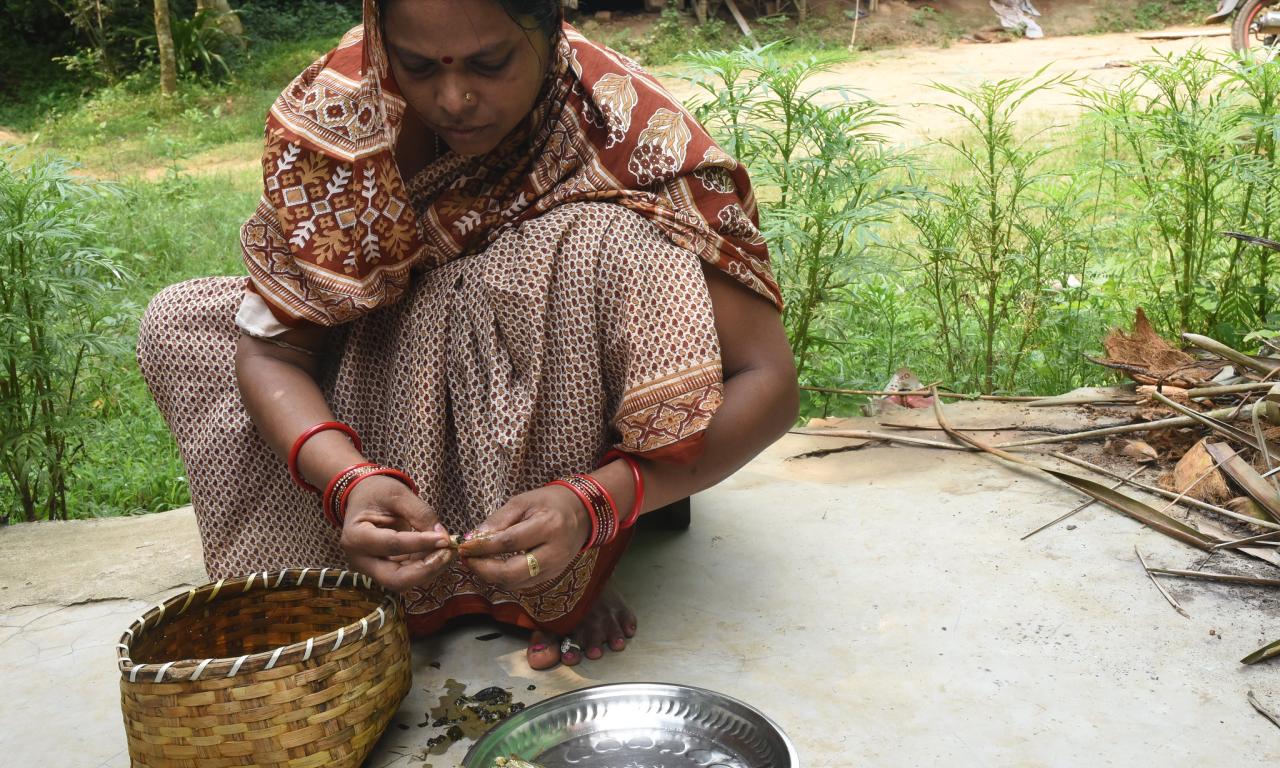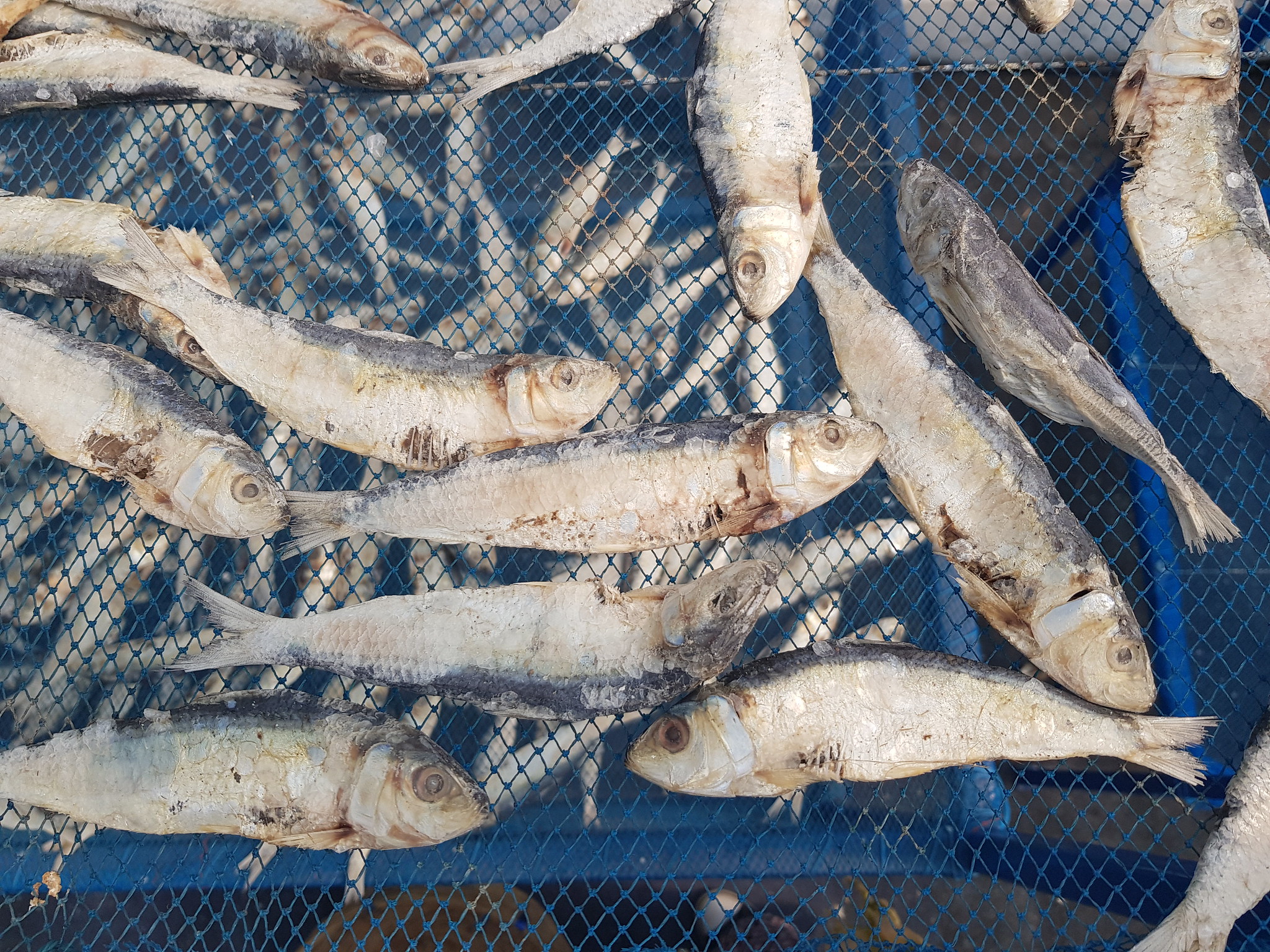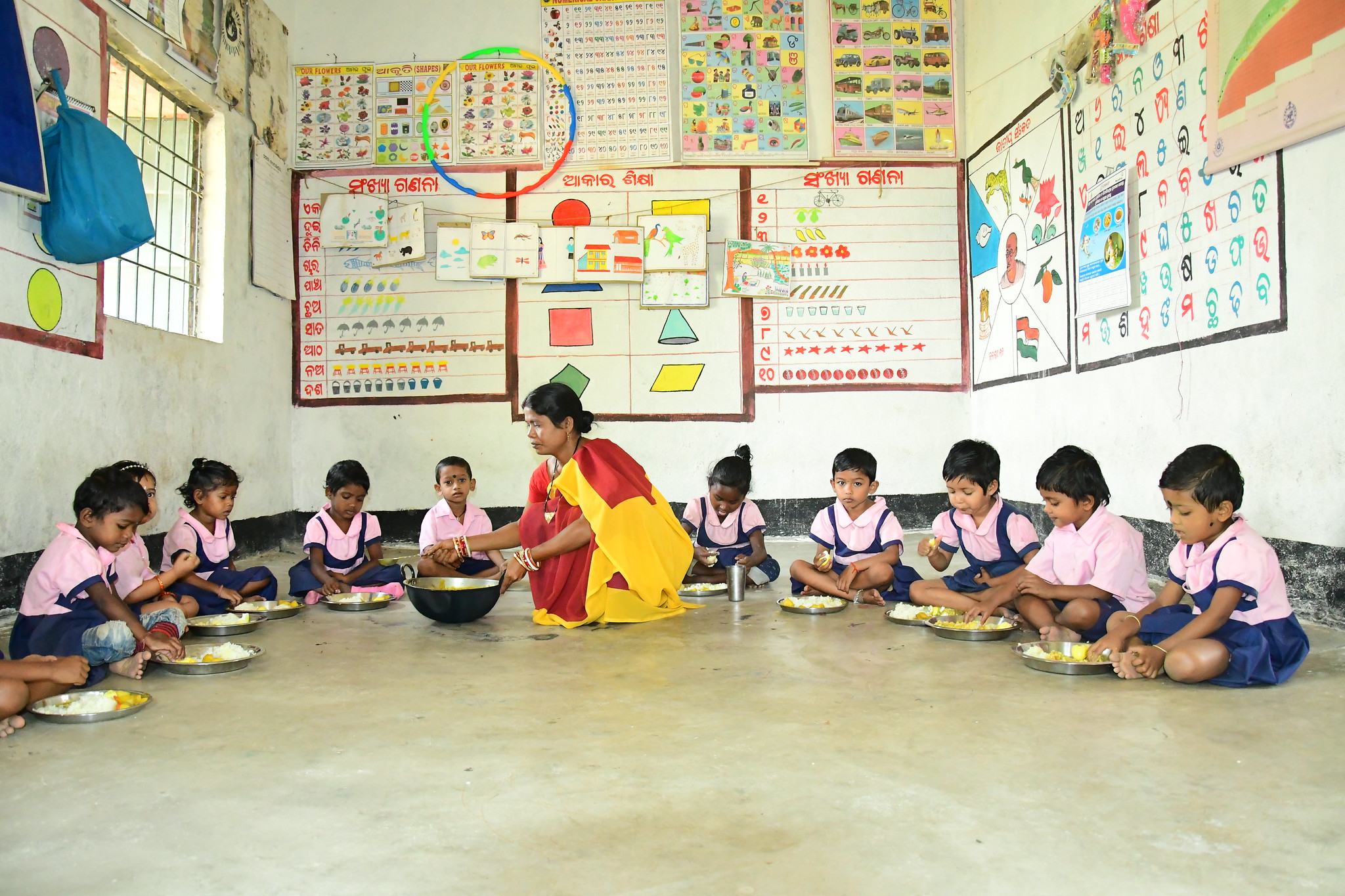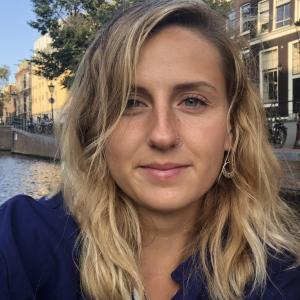
- Women’s self-help groups in Odisha state were trained in aquaculture to produce nutritious aquatic foods for local markets and home consumption
- Increasing local production and consumption of fish and processed fish-based products is a solution to alleviating malnutrition in the state
- On a pilot basis, childcare centers (Anganwadi centers) provided fish-based hot cooked meals to children as part of the state's Supplementary Nutrition Programme
Linking locally-sourced aquatic foods with food and nutrition policies in India's Odisha state is revolutionizing the fight against malnutrition while boosting the livelihoods of women.
Odisha is home to 43 million people, and despite making significant progress in recent years, the state government is still struggling to eliminate food and nutrition insecurity. About 29 percent of children under the age of six years are stunted, which is largely attributed to a lack of nutritious foods and low dietary diversity.
Increasing the local supply and consumption of aquatic foods, which are rich in micronutrients, essential fatty acids and protein crucial for cognition and development, is one potential solution to the state’s nutritional challenges.
But despite its vast resource potential in the fish producing sector, Odisha continues to import a significant quantity of fish from neighbouring states to meet demand. These imported aquatic foods are often too expensive for the poor and marginalized to include in their diets.
The State Government of Odisha and WorldFish thus partnered to increase the availability, accessibility and affordability of nutrient-rich small fish, aiming to curb widespread malnutrition and poverty, through the development of the state’s aquatic food sector and placing women at the helm.
The USAID-funded project, Scaling Nutrition-Sensitive and Innovative Fisheries Technologies through Partnerships in Odisha, worked to train women's self-help groups in performing nutrition-sensitive aquaculture in public waterbodies and further completed a pilot program that incorporated fish-based products into hot cooked meals served at childcare centers.
As part of the project, the women were taught to raise indigenous small fish like mola alongside commercial Indian major carp species for a nutrition-sensitive approach to aquaculture. This polyculture system not only improves the quantity of aquatic foods reared, but it also improves the nutritional quality and diversity of food produced as small fish are packed full of nutrients.
Farming multiple species together also increases productivity and profitability, as fish can be harvested at different times throughout the year, promoting household consumption of nutritious small fish while other species can be sold for income.
“Through the training, we learned that small fish are rich in micronutrients. As a result, we also grew small fish [alongside carp species] in our ponds and used these fish for our own personal consumption,” said Aparnasheela from Mayurbhanj District.
The project, which has now come to a close after a successful three-year run, succeeded in supporting women’s empowerment through new livelihood opportunities while ramping up micronutrient-rich local fish production and consumption.
“With the money earned through aquaculture, we were also able to provide education to our children and send them to a better school,” said Aparnasheela.
Boosting women's livelihoods with aquatic foods

Throughout India, women's self-help groups foster corporation amongst women for collective social and economic benefits while granting them a degree of financial autonomy.
“As members of a tribal group, we couldn't perform many jobs as individuals, so we decided to form a women’s self-help group and become involved in certain income-generating interventions collectively to improve the economic situation of our families,” said a member of Maa Nabami, a women's self-help group in Rayagada District.
WorldFish’s research project supported the Odisha government’s gender-sensitive policies, which promoted women’s groups involvement in fish production by providing long-term leases of community waterbodies for fish farming. Traditionally women are not engaged in the production of aquatic foods but rather center their efforts in postharvest activities like processing and trading—by providing leasing arrangements, the government intended to break gender barriers and provide new economic opportunities to women.
"By centering fish farming in public waterbodies through appropriate policies, the aquaculture industry can become more accessible to women, who often do not have access to land to undertake private fish farming operations,” explained Neetha Shenoy, an aquaculture specialist at WorldFish.
“After we saw other women’s groups in our area engaged in the production and supply of aquatic foods and earning money from their collective efforts, we realized it was possible for us to do so too. Inspired, twelve of us women came together to form a new women’s self-help group engaged in fish farming,” said Aparnasheela, who is a member of the Maa Mamta women’s self-help group.
Since 2018, over 6,000 women’s self-help groups have been involved in the government efforts, which provided guidance to ensure sustainable and profitable aquatic food production and a resilient source of income and nutrition.
"The community-based fish production systems will have a long-lasting socioeconomic impact on villages across Odisha, improving food and nutrition security, gender equity and environmental sustainability,” said Shenoy.
Furthermore, selected women’s self-help groups in coastal fishing villages were also supported in installing low-cost solar driers and trained to hygienically dry and process fresh fish, thereby improving quality and prolonging shelf-life. The women have also used the dried fish to develop fish-based products that they have sold for additional income.
“Our efforts have focused on using locally relevant businesses to generate income for women and to develop products that are culturally acceptable and in demand,” said Arun Padiyar, project manager at WorldFish.
Incoporating aquatic foods into national feeding programs

Another focus of WorldFish’s project in partnership with the Odisha government was increasing consumption of aquatic foods among vulnerable communities. These efforts trialled the incorporation of fish-based products in the meals served at the Anganwadi centers (childcare centers) and in the take-home rations of women.
Fish-based products, such as dried small fish and powder, were incorporated into curries and other hot cooked meals and served to children between three to six years old as part of the state’s Supplementary Nutrition Program.
The feeding pilot was conducted in fifty Anganwadi centers across the state, involving 1200 children, in an effort to improve health and nutrition outcomes.
“Children are generally hesitant to eat fish because of the bones. The project provided us with the fish powder that we mix in regular hot cooked meals and serve it to the children five days a week. They enjoyed eating fish in that form,” explained Puspalata Behera, a mother from Talabani village whose child who was included in the feeding program trial.
Apart from the hot school meals blended with fish powder, dried small fish packets were also included in food packages and take-home rations that were distributed to pregnant and lactating mothers and adolescent girls to support optimal growth and development of the next generation.
“We usually eat rice and vegetables as our staple foods. The small fish we received has helped diversify our diets. I believe that fish consumption will undoubtedly improve my health and nutrition, as well as that of my children,” shared Tapura Baske, a lactating mother who participated in the project.
Inadequate nutrition in the first 1000 days of a child’s life—from conception through the child’s second birthday—can result in delayed cognitive and physical development and is often associated with stunting and poor school performance.
Replicating successful collaboration in other regions
Following the pilot project’s conclusion, the Government of Odisha is planning to adopt and scale-up the efforts by linking the women’s self-help groups to the Anganwadi centers to sustainably supply the fish and fish-based products.
“Ideally, women will be farming fish, processing fish into food products and then those products will be fed to children and nursing mothers, tackling both gender inequality, poverty and malnutrition through a cohesive aquatic food system,” said Padiyar.
The initial success was only made possible by collaboration across government agencies, from the Department of Fisheries to the Department of Women and Child Development and Mission Shakti, to encourage the consumption of nutritious fish, going beyond production to examine the implications for human nutrition.
The Indian Council of Agricultural Research (ICAR) was also instrumental as a project collaborator aiming to increase the impact of fisheries and aquaculture research in India, extrapolating the lessons that can be applied to other states and regions.
“This Odisha model can be replicated in other parts of the globe to reach undernourished populations with a regular supply of nutritious aquatic foods. This project has also shown aquatic foods systems to be particularly resilient when utilizing existing public distribution systems,” said Ravishankar Chandragiri Nagarajarao, director of ICAR-Central Institute of Fisheries Technology.
Anu Garg, the Principal Secretary of Odisha's Department of Women and Child Development, credited the success of the project to the fruitful collaboration between multiple government departments and knowledge partnership with WorldFish and ICAR.
“Political will, blended with proactive bureaucracy and inter-departmental convergence, can help ground initiatives. Partnerships with WorldFish and ICAR are important as they provide technical inputs, supply and support. Involving women is also critical for sustainable livelihoods and food security across the region,” concluded Garg.
